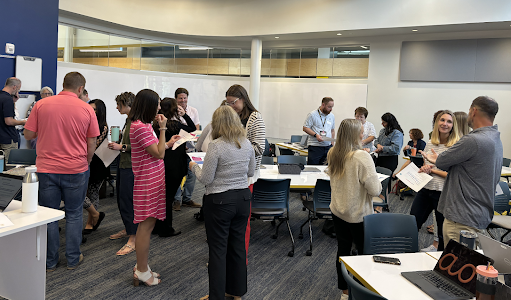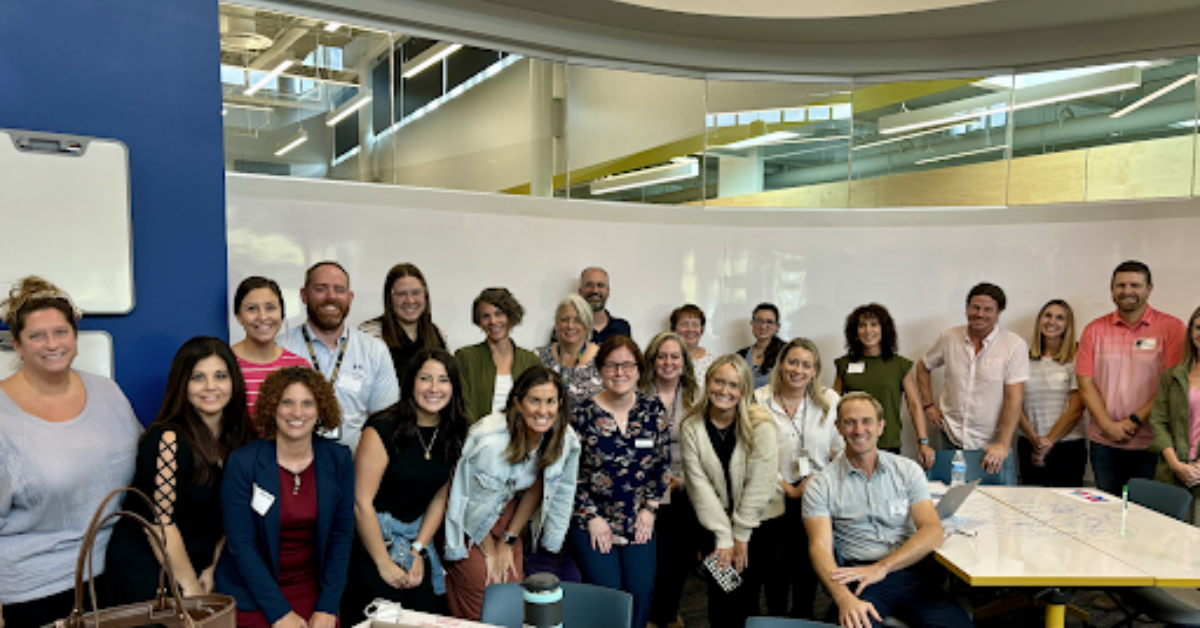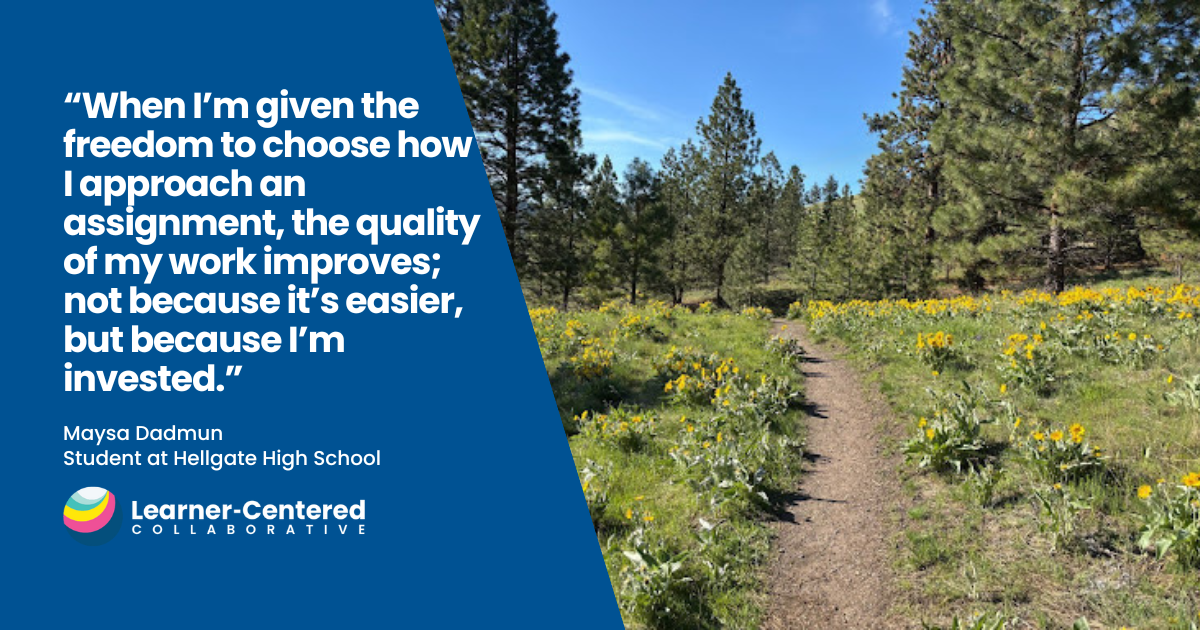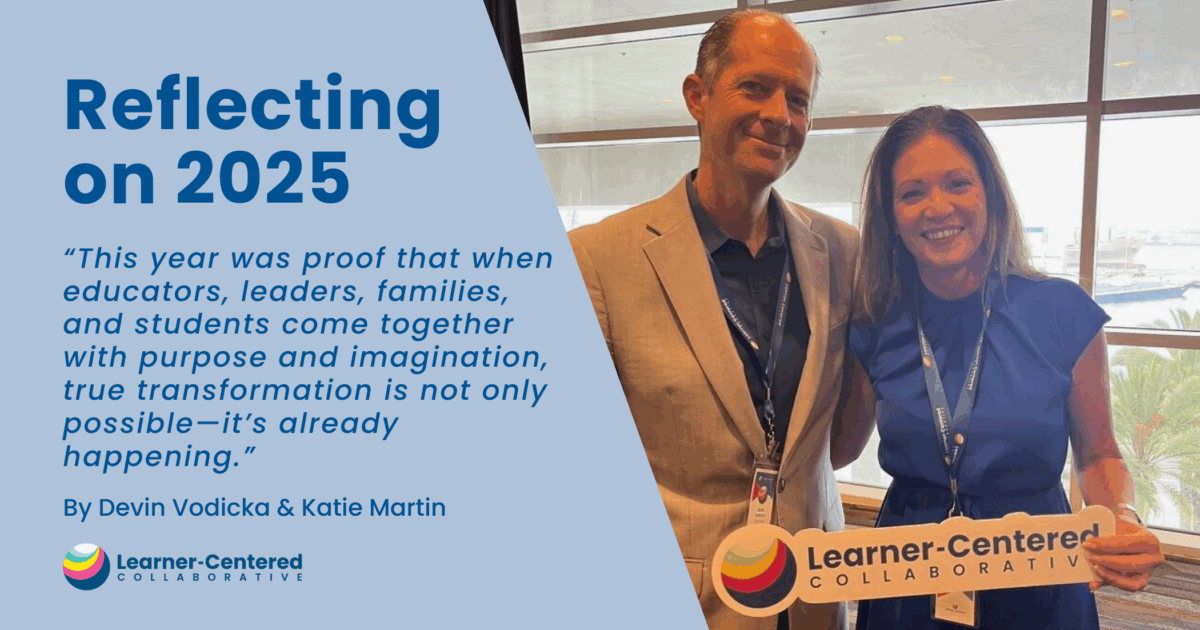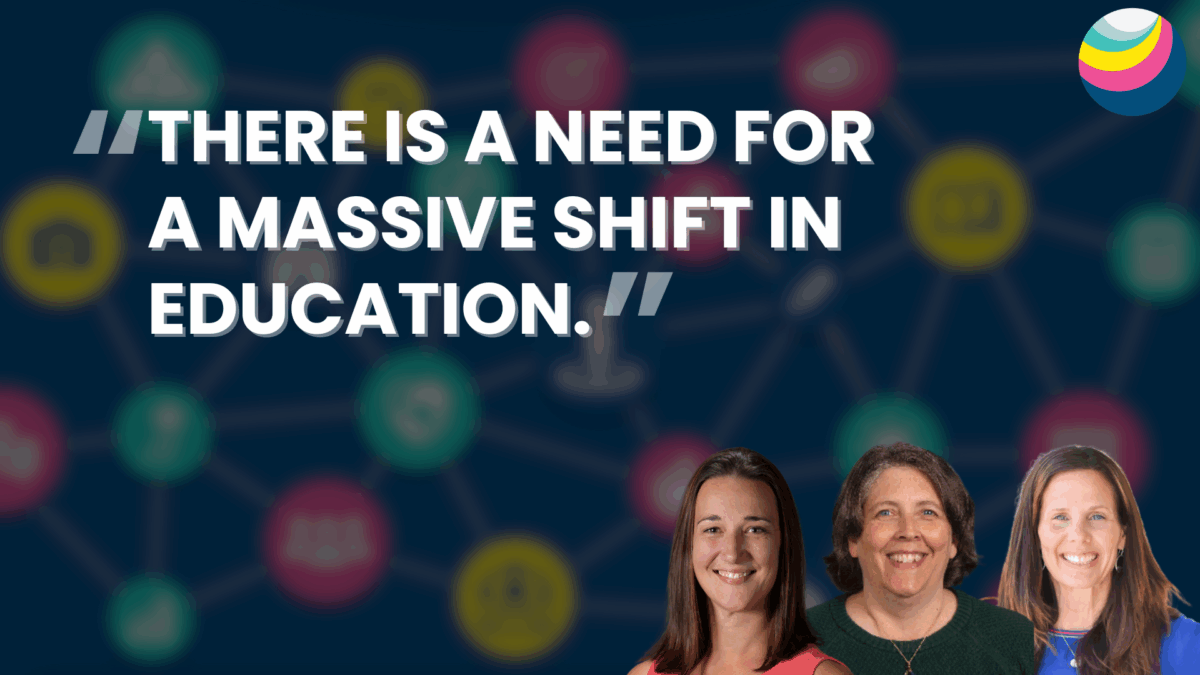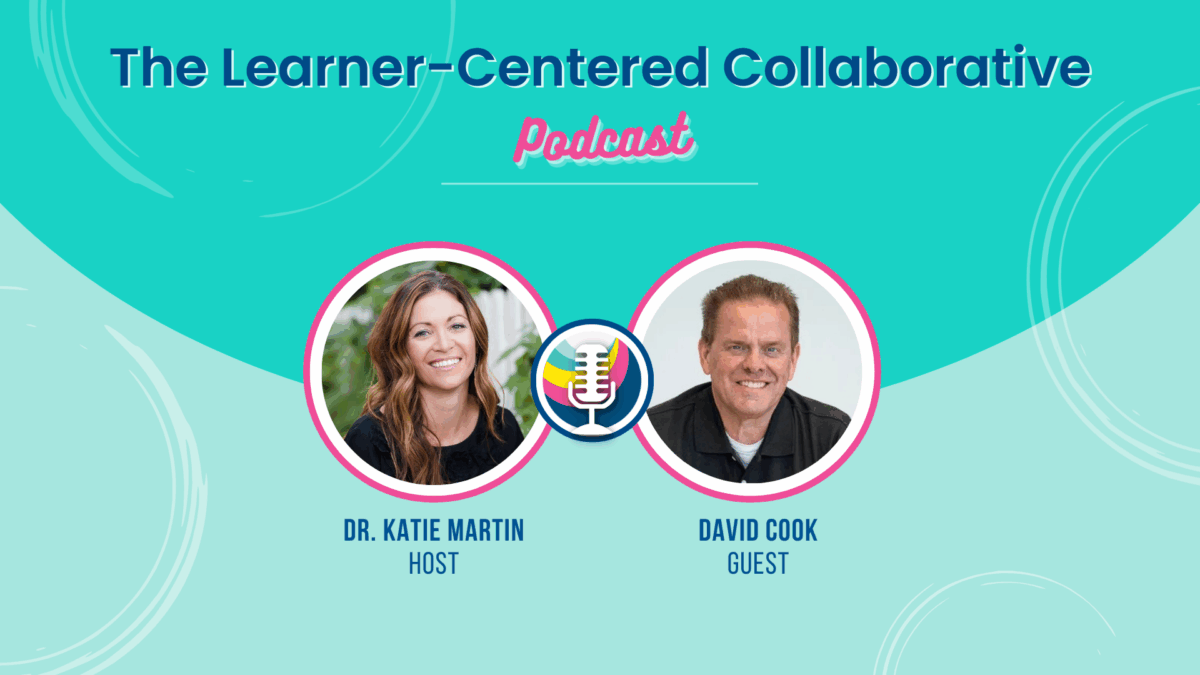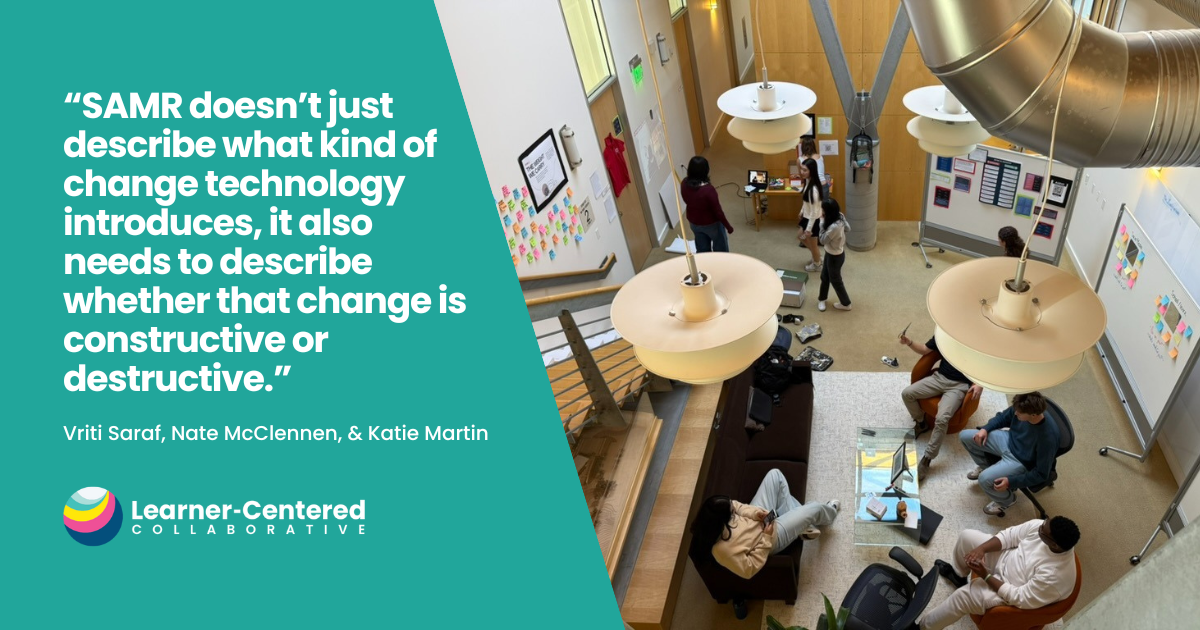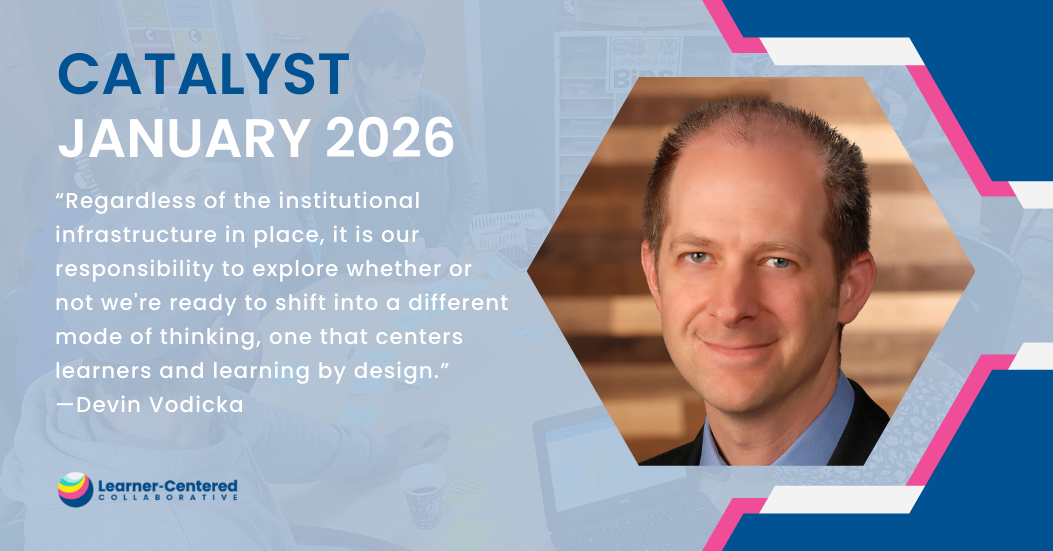These Pennsylvania Educators are Ready to Make Change Happen
Co-authored by Brittany Griffin and Jesse Ross
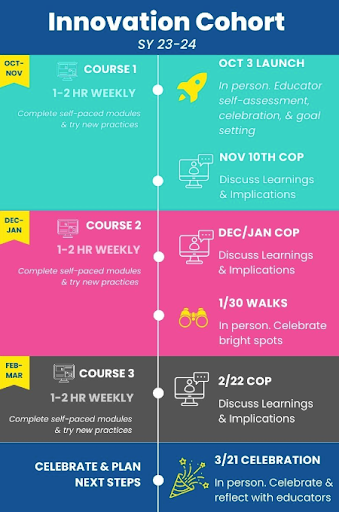
Collaborative, learner-centered innovation has taken off in Western Pennsylvania. Throughout the 2023-24 school year, 23 educators from four Western Pennsylvania school districts—Hampton Township, Shaler Area, Deer Lakes, and Avonworth—are participating in a Learner-Centered Collaborative Innovation Cohort. Get an inside view into the experience in this 3-part series (updated after each in-person learning day).
Fall Cohort Convening
Launch. Self-assess. Set goals. Celebrate.
This particular regional Innovation Cohort is designed to enhance and deepen the learner-centered practices each educator is implementing in their classrooms and across their districts. Throughout the academic year, educators will engage in three self-paced courses of their choosing, three virtual meet-ups with their communities of practice, and three in-person learning days.
The fall in-person convening was a time to align on areas of focus for the cohort, and for many, it was also the first time meeting and participating in this type of collaborative, learner-centered learning experience.
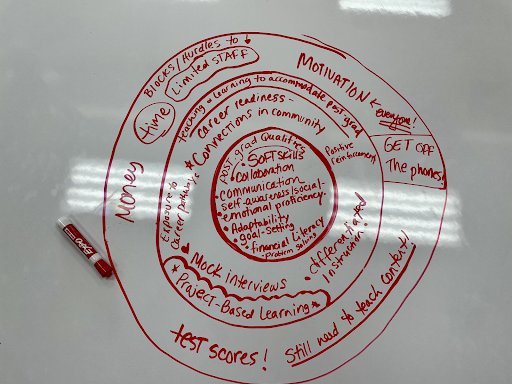 To kick off the day and the cohort, the Learner-Centered Collaborative team brought intentional structures, resources, and prompts to both build rapport and help participants reflect on where they are in their learner-centered journey. We focused on finding alignment on what we were all committed to as educators. Participants opened up about their desire to freely reimagine what education and learning could look like in their classrooms and realized that though their day-to-day experiences differed, they shared a commitment to learner-centered education.
To kick off the day and the cohort, the Learner-Centered Collaborative team brought intentional structures, resources, and prompts to both build rapport and help participants reflect on where they are in their learner-centered journey. We focused on finding alignment on what we were all committed to as educators. Participants opened up about their desire to freely reimagine what education and learning could look like in their classrooms and realized that though their day-to-day experiences differed, they shared a commitment to learner-centered education.
Importantly, this is learner-driven work. In this case, the learners are the 23 participating educators. They share expertise, learn new techniques together, steer their own development, and practice the self-directed learning skills they wanted to instill in their students.
To strengthen relationships with their peers and ground our work in practical examples, participants embarked on an informal walkthrough of Hampton Township High School. Wandering the halls in small groups, they were simply invited to celebrate the creativity on display in the hallways and the classrooms they entered. Rather than looking for deficiencies, they focused on the bright spots. With this orientation, the cohort could focus on seeing the school and the learning with fresh eyes. For some, it was the first time visiting a school in another district and experiencing the value of this practice.
At a shared lunch, conversation flowed freely between educators who had been strangers just hours before. They traded classroom and leadership challenges and inspirations, establishing connections that would facilitate collaboration back in their home districts. The energy was palpable. What began with uncertainty was blossoming into camaraderie and collective efficacy.
In the afternoon, teachers explored the online courses on offer, ranging from Learner-Centered AI to Design Real World Learning Experiences to Design Thinking. Their excitement grew as they began mapping out personalized plans tailored to their curiosities, setting off on their own unique learning journeys.
As the first day came to a close, positivity and gratitude filled the room. “Honestly, this was the perfect presentation. A mix of moving around, listening, working in groups, and working alone. It made the day fly by and kept my focus and attention all day,” remarked one participant. Another shared, “I appreciate that you appreciate our time.”
While forging new territory always requires courage, teachers expressed confidence after feeling empowered to steer their own development. One participant noted she felt motivated to “ignore the roadblocks and just dive in.”
This cohort marked a new chapter for these 23 Pennsylvania educators. For some, it’s an opportunity to share their own insights from the first steps they’ve already taken on their learner-centered journeys. For others, it marks the beginning of a completely new path. For all, there are many opportunities ahead, and armed with new ideas, relationships, and purpose, they are ready to reimagine teaching and learning, together.
Before the next in-person session this winter, participants will work through their first course (and engage in our online learning community), meet-up virtually with their communities of practice, and perhaps connect informally with each other, too.
If you are a school or district leader who wants to bring an Innovation Cohort to your region, fill out this short form and we’ll be in touch!
